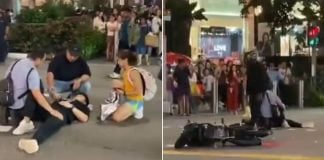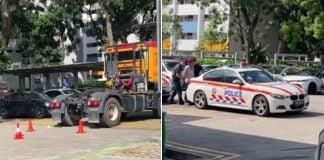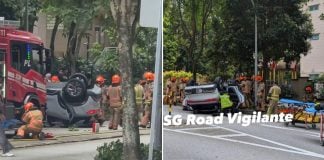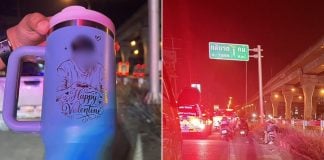Martial law in Singapore, will it ever happen?
This piece is part of MS Explains, a segment where we provide clarity to common or key topics, making them easier to digest.
–
After South Korean president Yoon Suk Yeol suddenly and dramatically imposed martial law in early December, the world was stunned.
Although the state of emergency lasted only six hours before being lifted, its ramifications will surely be felt for many years to come.
The historical event did not did not go unnoticed in Singapore, sparking intense discussions about whether such a scenario could unfold on our shores. Could martial law also suddenly be declared in Singapore?
To begin with, only about 36% of 954 people polled are familiar with the concept of martial law, according to Answers.sg.

On the other hand, about 40% admitted to being completely unfamiliar with or uncertain about their understanding of the term.
What is martial law?
According to Encyclopedia Britannica, martial law is defined as “temporary rule by military authorities of a designated area in time of emergency”.
During national emergencies — such as war, rebellion, or natural disaster — governments need to make decisions quickly, while also making sure that they are thoroughly enforced.
In short, martial law is when military authority temporarily takes over the civilian government.
As for who can declare martial law, that depends on each country’s constitution. In the United States (US) for example, the President or a State governor can declare martial law.
Closer to home in Thailand, the commander-in-chief of the Royal Thai Army declared martial law on 20 May 2014.
An official announcement stated that this was to maintain “peace and order” following “wide spread [sic] armed attacks aimed at inciting violence”.
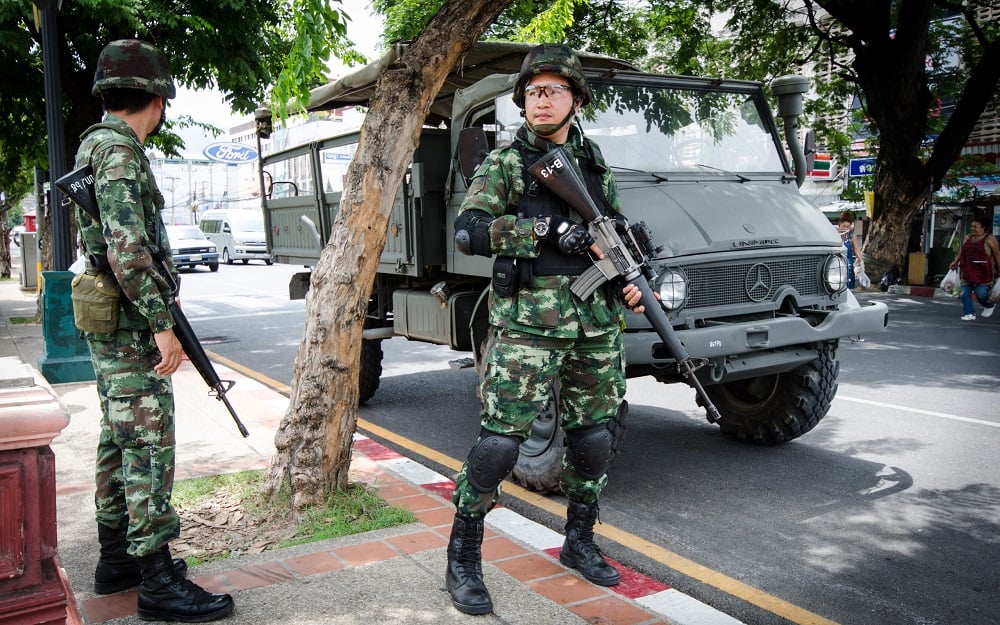
Source: Wikimedia Commons
The argument against martial law is a civil rights issue. During martial law, freedom of speech, press, and assembly may be suspended.
For instance, in 2014, the Thai military government faced criticism for censoring mass media by taking 14 TV channels off the air.
Can martial law be declared in Singapore?
While the term ‘martial law’ does not exist in the Singapore constitution, it does mention that the President may issue a “Proclamation of Emergency”.
This is done when he or she thinks that Singapore’s “security or economic life is threatened”.
The Emergency (Essential Powers) Act confers certain powers to the president of Singapore in such cases.

Source: Tharman Shanmugaratnam on Facebook. Image for illustration purposes only.
For example, the President can make any regulations he or she considers desirable or expedient for the following ends:
- Public safety
- Defence
- Maintaining public order
- Maintaining supplies and services essential to the life of the community
The President can also establish provisions for the apprehension, trial, and punishment of individuals who violate the regulations.
This includes the authority to “create offences and prescribe penalties”, which may extend to the death penalty.
The President can also order the seizure of any property belonging to any person, on behalf of the Government, as long as it isn’t land.
Emergency powers are temporary, Parliament is involved
While the President appears to have significant powers during a state of emergency, these are only temporary.
Under the Singapore constitution, the state of emergency is set to end six months after the declaration.
Additionally, the President’s Proclamation of Emergency will be checked by Parliament.
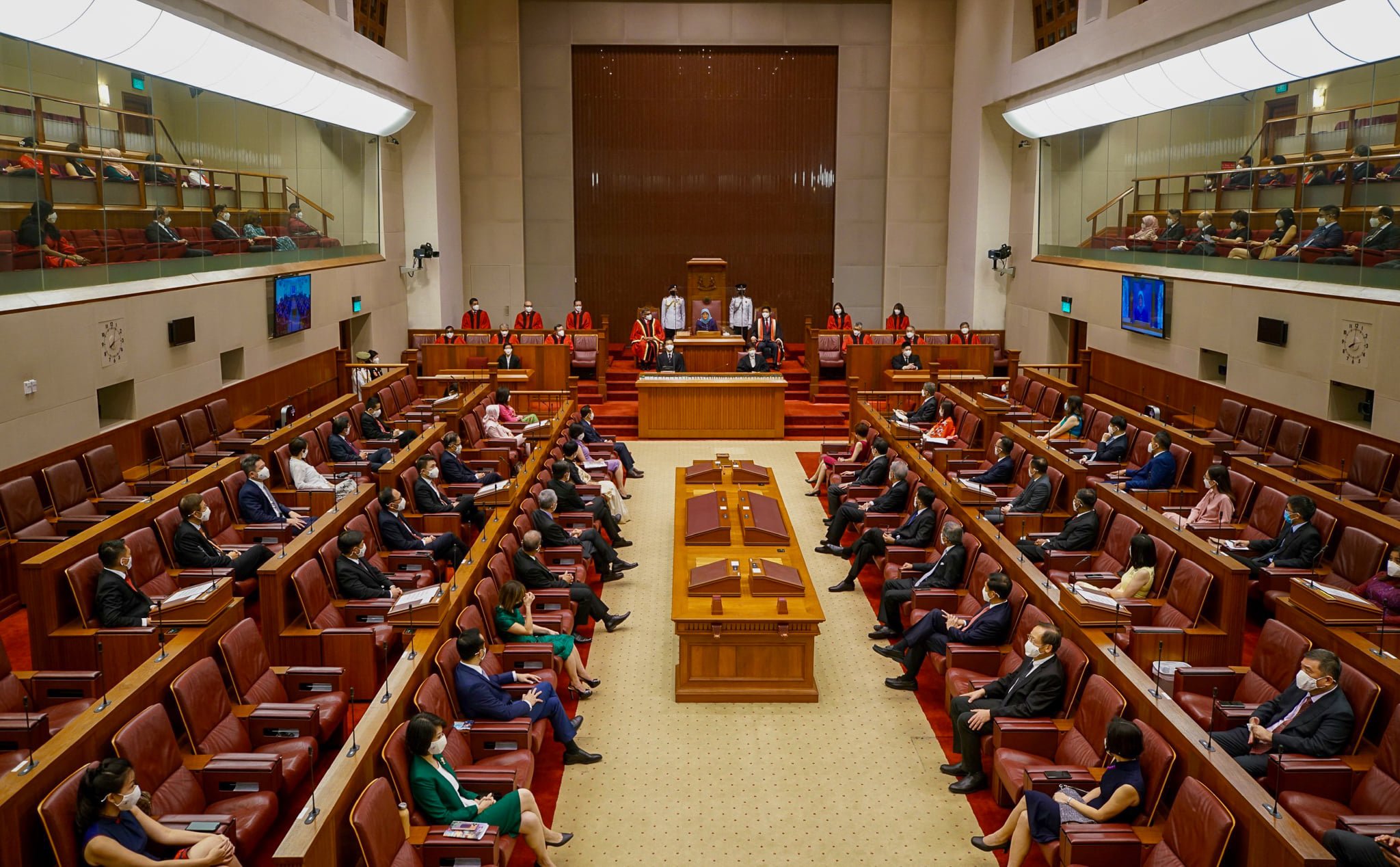
Source: Parliament of Singapore on Facebook
The Constitution states that the president must present the Proclamation of Emergency to Parliament.
Parliament also has the power to annul the Proclamation if a resolution is passed.
Singapore was once in a state of emergency
Since its independence in 1965, Singapore has not been in a situation where the President had to declare a state of emergency.
However, things were different when the country was still a British colony.
On 24 June 1948, the Governor of Singapore declared a state of emergency in light of an armed insurgency by the Malayan Communist Party (MCP).
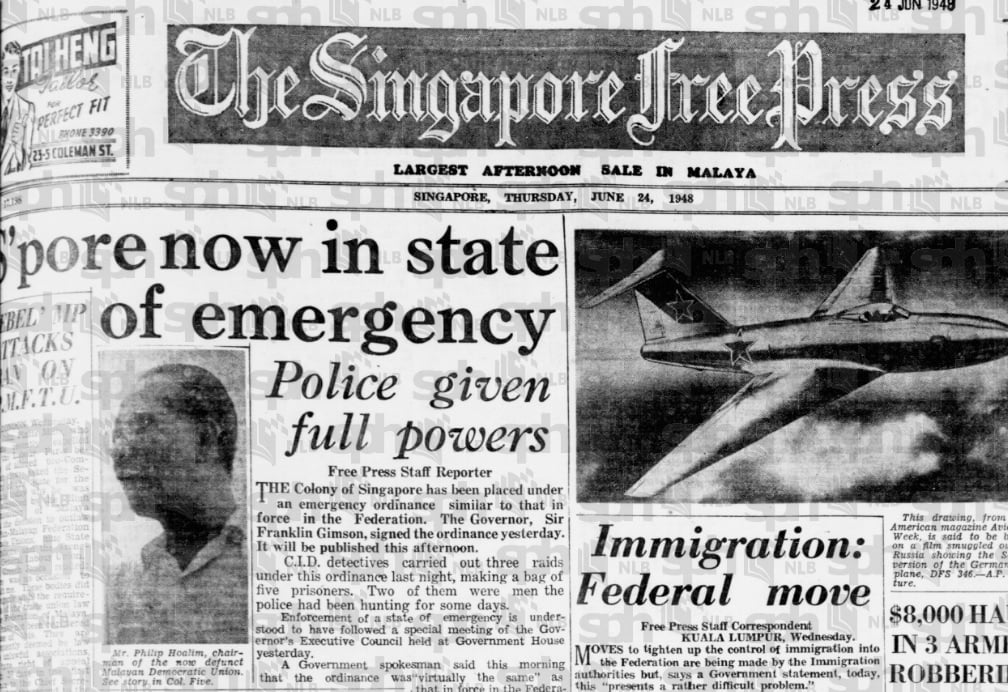
Source: NewspaperSG
The MCP planned to establish a communist state which would have also included Singapore.
During the state of emergency, the police had the right to search suspected persons and premises without a warrant.
They could also close roads and seize vehicles and boats in the interests of the public.
According to the Straits Times, the state of emergency ended on 31 July 1960 — 12 years after it was declared.
Can it happen again?
Since then, Singapore has not experienced such a severe nationwide emergency.
Geographically, the island is shielded from major natural disasters and the Lion City is also seen as one of the most peaceful countries in the world.
The Global Peace Index (GPI) — which featured 163 countries — ranked Singapore as the sixth safest country in the world in 2024 based on indicators such as:
- The number of internal and external violent conflicts
- Level of distrust
- Political instability
- Potential for terrorist acts
- Military expenditures as a percentage of GDP, among others.
Hence, although a ‘Proclamation of Emergency’ exists in Singapore, it has not been needed — though it is hard to predict if a state of emergency will ever occur.
Proclamation of emergency and martial law not a light matter
The impeachment of South Korea’s President Yoon, however, shows that such declarations of emergency are not taken lightly.
His declaration on 3 Dec was met with near universal outrage and massive backlash. According to Agencia EFE, 75% of Koreans who responded to a survey conducted by Gallup Korea were in favour of impeaching the President.
Lawmakers scrambled to revoke the declaration, and martial law was lifted around six hours after the declaration.
While Singapore’s president can proclaim a state of emergency, similar checks and balances also exist in the nation’s Constitution.
A state of emergency will only be declared if and when there is a grave threat to the country’s security.
Have news you must share? Get in touch with us via email at news@mustsharenews.com.
Featured image adapted from MINDEF Singapore. Image for illustration purposes only.



